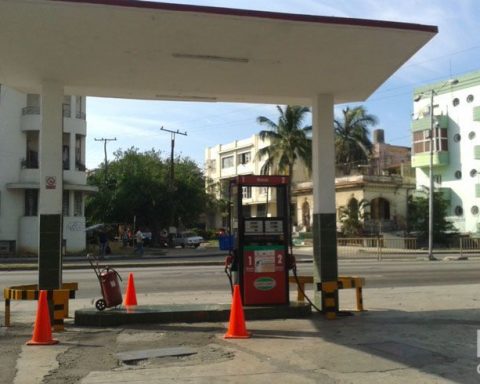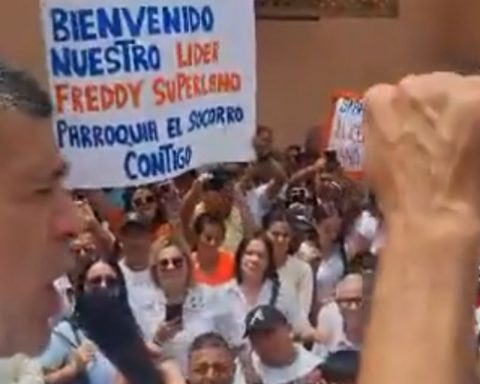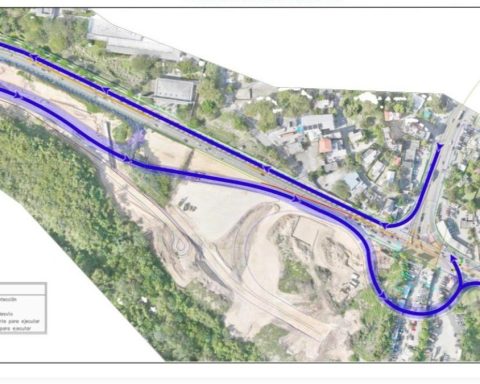The Constitutional Court (TC) established that judges who order preventive detention measures must evaluate every six months whether the reasons for which the freedom of an investigated person was restricted persist.
The ruling 341/2022 published this November 15, declares the habeas corpus lawsuit filed in part by Jaime Yoshiyama Tanaka against the Second Criminal Chamber of National Appeals, which, on January 3, 2019, confirmed the order of preventive detention for 36 months that was ordered in against him for the Lava Jato case.
When evaluating this case, the magistrates of the TC studied each of the challenges against the resolution and declared most of the facts mentioned by the legal defense of the former Secretary General of Fuerza Popular to be valid.
LOOK: TC left the vote of Congress habeas corpus filed by the president
Although they rule out that the Judiciary had “detained him to investigate”, the TC established that the room did not make an adequate assessment with a proportionality test or all the elements of conviction that were questioned by the investigated, on which the magistrates indicate that they should not be considered as a “serious suspicion” by indicating that they have “insufficient reasoning” in the resolution.
For this reason, regarding the specific case of Jaime Yoshiyama, the Constitutional Court establishes that the Second Criminal Court of Appeals does not commit these omissions again.
Additionally, the magistrates proceed to develop standards or parameters that all preparatory investigation judges, review rooms and the Supreme Court must attend to when issuing pretrial detention.
Indispensable for preventive detention
In its resolution of November 15, 2022, the Constitutional Court indicates that a proportionality test is essential with a sustained and differentiated analysis of proportionality on the duration of pretrial detention, in addition to explaining its “due reinforced motivation.”
The TC also recalls that this measure is exceptional and “It is appropriate to prevent pretrial detention orders from becoming general and their use being abused by distorting the applicable rule and/or, in the worst case scenario, from being instrumentalized in response to other secondary purposes, other than those intended”.
LOOK: Alberto Borea: “Pedro Castillo cannot personify the nation”
For this reason, the resolution highlights that preventive detention “is not punitive” but precautionary, it is exceptional and should only be applied based on a proportionality test that evaluates the necessity and suitability.
“It is essential that the competent judicial body explain, clearly develop and argue, individually and differently in each particular case of the accused concerned, the reasons that led it to conclude that, in the specific case, preventive detention is the one that corresponds. provide and why it could not be decided to impose another less burdensome measure of restriction of freedom”.
Evaluate preventive detention every six months
The Constitutional Court orders that the Judiciary evaluates every six months if a pretrial detention has all the current grounds to restrict the liberty of the defendant.
In the resolution of the Yoshiyama case, they detect that the Criminal Procedure Code only establishes that the person under investigation is empowered to request the cessation of his preventive detention.
Despite this, it appreciates that the Inter-American Court of Human Rights indicates that the State must periodically review the budgets for which pretrial detention was issued. Likewise, they highlight that in all the countries of the region except Argentina and Brazil there is an ex officio analysis on the validity of these measures.
For this reason, the ruling states that judges not only can but ‘should’ carry out the periodic review on the subsistence of the reasons that founded a specific pretrial detention at the time.
LOOK: Congress asks the Constitutional Court to interpret article 117 of the Constitution
“This Constitutional Court establishes that, in application of the control of conventionality, the judges of the preparatory investigation must carry out the periodic review ex officio of validity of the budgets that supported at the time the issuance of a preventive detention measure against the accused. It also establishes that Said review is carried out every six months after the issuance of the”have.
In the sentence, the TC also urges the Congress of the Republic to make the pertinent changes so that the Criminal Procedure Code makes explicit this need for judges to make these periodic and ex officio reviews.


















